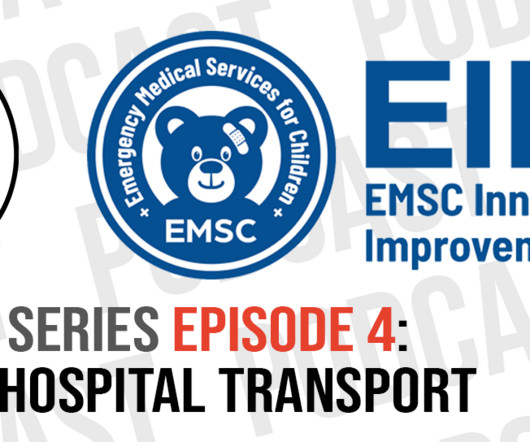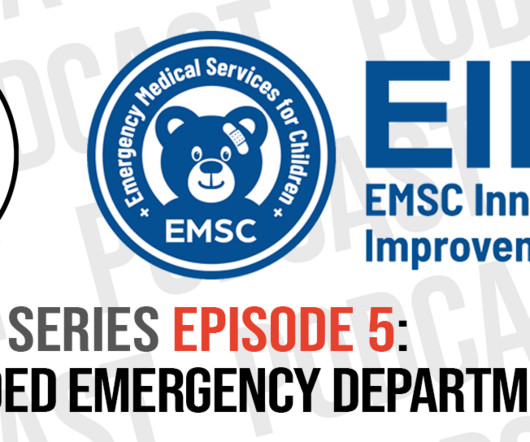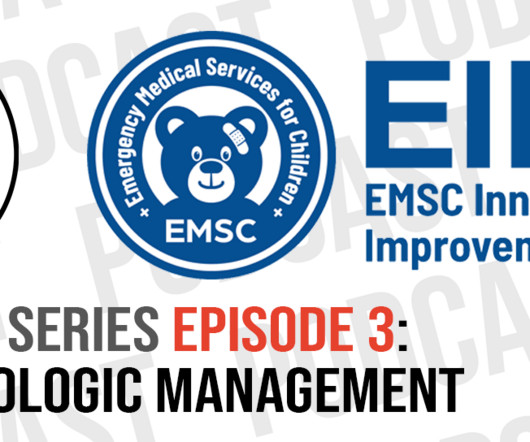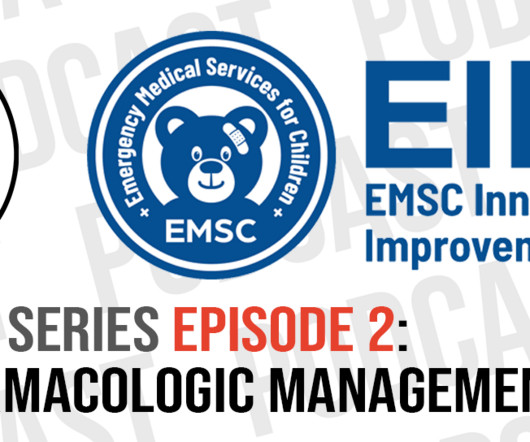Agitation Podcast Series Episode 4: Safe prehospital transport of the agitated child
PEMBlog
JUNE 7, 2023
Describe the role of medical control in determining destination and goals of safe transport This episode is a co-production of the Emergency Medical Services for Children Innovation and Improvement Center whose mission is to minimize morbidity and mortality of acutely ill and injured children across the emergency continuum. Government.












Let's personalize your content